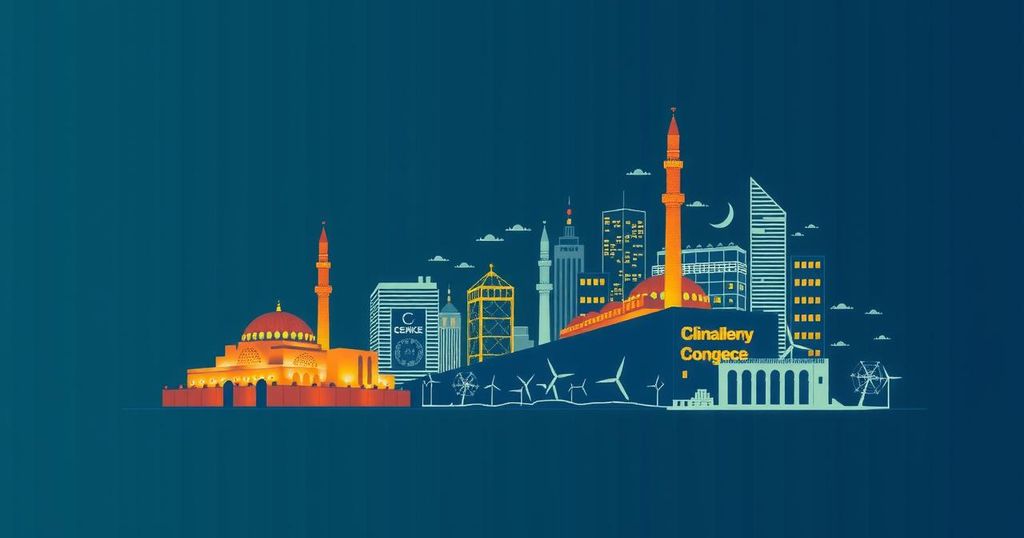Climate change
ALEXANDER STUBB, ASIA, AZERBAIJAN, BAKU, CLIMATE CHANGE, CLIMATE JUSTICE, COMMISSION, DUBAI, ECONOMIC RESILIENCE, ENVIRONMENTAL POLICY, EU, EUROPE, FINLAND, FINNISH GOVERNMENT, INTERNATIONAL COOPERATION, KAI MYKKÄNEN, KAI MYKKANEN, MY, MYKKÄNEN, PARIS AGREEMENT, STUBB, UNITED ARAB EMIRATES
Jamal Walker
0 Comments
Baku Climate Conference: Prioritizing Climate Finance and Energy Transition
The Climate Change Conference COP29 in Baku will focus on establishing a new climate finance target amidst rising global temperatures. Finland’s delegation, led by President Alexander Stubb and Minister Kai Mykkänen, aims to push for rapid emissions reductions and broaden the scope of climate financing to include diverse sources. As critical discussions unfold, the conference seeks to mobilize efforts for adaptation and mitigation, involving both traditional and emerging economies in climate action.
The upcoming Climate Change Conference COP29, set to take place in Baku, Azerbaijan, from November 11 to 22, will prioritize establishing a new climate finance target. As countries aim for accelerated energy transitions amidst escalating climate threats, discussions surrounding emission reduction targets for the following year are central to the agenda. Finland’s President Alexander Stubb and Minister of Climate and the Environment Kai Mykkänen will represent Finland at this significant gathering. The backdrop of these negotiations is a precarious global political climate exacerbated by increasingly severe weather events tied to climate change. Notably, the Conference commences with a World Leaders Climate Action Summit, where key decisions will impact the path toward achieving the crucial 1.5-degree Celsius climate goal. The need for rapid emissions reductions is paramount, especially from major economies that significantly influence global emissions trends. Mr. Mykkänen emphasized the necessity of implementing the agreement to phase out fossil fuels reached in Dubai, with Finland supporting the European Union’s upcoming 2040 emission reduction target. A critical focus of COP29 will be to mobilize diverse climate financing sources, particularly for developing nations, which require aid for climate adaptation and mitigation efforts. The negotiations aim to finalize a post-2025 climate finance target, referred to as the New Collective Quantified Goal (NCQG). Finland and the EU advocate for broadening the range of financial contributors to include both public and private sectors and to engage nations with significant greenhouse gas emissions in the funding process. As part of the agenda, discussions will also address international market mechanisms that facilitate climate actions beyond national borders. Additionally, the conference seeks to finalize indicators for an adaptation target, ensuring continued progress toward climate resilience. Overall, COP29 represents a pivotal moment for international cooperation in combating climate change, with an emphasis on actionable commitments and coherent financing strategies across both developed and developing nations.
The Baku Climate Change Conference COP29 aims to address the urgent need for enhanced climate financing and a faster transition to renewable energy sources. As the world grapples with the impacts of climate change, including severe weather events, nations are preparing to negotiate emission reduction targets critical for limiting global temperature rise. This conference represents a concerted effort to mobilize financial support for vulnerable countries to combat climate change and adapt to its repercussions. Additionally, the conference will scrutinize existing commitments regarding international climate financing and seek broader participation from countries across economic spectrums to fulfill climate goals.
The Baku Climate Change Conference COP29 is set to play a crucial role in shaping international climate policy, particularly in terms of financing and emission reductions. The gathering will address significant challenges faced by developing nations and seek to establish a new climate finance target aimed at facilitating global cooperation in combating climate change. The discussions surrounding the financing framework, along with the emphasis on international market mechanisms, underscore the necessity for collective action to achieve the ambitious climate targets needed to mitigate global warming impacts.
Original Source: valtioneuvosto.fi




Post Comment